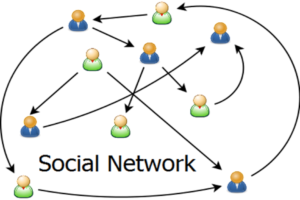
Figure 1: This figure shows several of the different effects of stress on different organs, muscles, and body systems.
Source: Wikimedia Commons
The topic of family as a source of stress for adults has long been studied by researchers. Though family can be a motivator and a source of happiness, there is also significant evidence that family can be a powerful stressor. A survey conducted by the American Psychological Association in 2010 found that 73% of parents reported family as a source of stress. This contributes to more overall stress in the immediate family, as children model parents’ behavior, including those behaviors related to stress – 86% of the children and teens surveyed reported that parental stress affected them significantly1. Stress impacts both mental and physical health. Mentally, stress amplifies feelings of sadness, anger, anxiety, and frustration; it can also make people feel more withdrawn and indecisive. These emotional and behavioral changes can cause or compound symptoms of depression and general anxiety disorder2. Physically, stress negatively impacts several body systems, including the immune, digestive, cardiovascular, and reproductive systems. It also increases the risk of heart disease, diabetes, and high blood pressure3.
Since family is an extreme source of stress for some individuals and stress has such significant impacts on a person’s general health, research into familial stressors is of critical importance. Now, a team of researchers from Southern Methodist University and Michigan State University have found that people tend to experience more positive emotions when they are spending time with friends than when they are spending time with their children or romantic partners. The team asked over 400 participants to take a survey where they rated different experiences that they had with friends and family. Overall, people reported that they felt the most well-being when with their friends; children came second, and romantic partners came third4.
Co-author of the study Nathan Hudson, a professor of psychology at Southern Methodist University, cautioned that these findings were more an indicator of the type of activity being done than who the activity was done with – people have to do unpleasant tasks while with their families, including chores and household caretaking. However, when with friends, people generally only do enjoyable activities. Hudson explained that when the team controlled for the type of activity, they found that “the ‘mere presence’ of children, romantic partners, and friends predicted similar levels of happiness”5. This means that family can still be a powerful source of positivity and happiness for individuals 5.
References
Managing stress for a healthy family (2019, October 18). American Psychological Association. Retrieved September 20, 2020 from https://www.apa.org/topics/managing-stress-healthy-family#:~:text=An%20online%20survey%20by%20the,a%20significant%20source%20of%20stress.
Stress (n. d.). Mental Health Foundation. Retrieved September 20, 2020 from https://www.mentalhealth.org.uk/a-to-z/s/stress
5 Things You Should Know About Stress (n. d.). National Institute of Mental Health. Retrieved September 20, 2020 from https://www.nimh.nih.gov/health/publications/stress/index.shtml
Hudson, N. W., Lucas, R. E., & Donnellan, M. B. (2020). Are we happier with others? An investigation of the links between spending time with others and subjective well-being. Journal of Personality and Social Psychology, 119(3), 672–694. https://doi.org/10.1037/pspp0000290stress/index.shtml
Southern Methodist University. (2020, September 17). The key to happiness: Friends or family? The answer may surprise you. ScienceDaily. Retrieved September 20, 2020 from www.sciencedaily.com/releases/2020/09/200917084049.htm
Related Posts
Learned Control of Spontaneous Dopamine Impulses in Mice
Figure: Dopamine is the so-called “feel-good” neurotransmitter, involved in cognitive...
Read MoreWhen the Going gets Tough, the Close start Nearing: Networks and External Stress
Figure: A Social Network (Wikimedia Commons, Author Zigomitros Athanasios –...
Read MoreExposure to Ultraviolet Radiation Slows the Spread of COVID-19
Figure 1: Face masks are decontaminated using ultraviolet radiation. Biosafety...
Read MoreAnahita Kodali



